Singapore is no alternative for Hongkongers angered by loss of freedoms – the Lion City’s restraints go far beyond Hong Kong’s
The words “Repeal 377A”, referencing a law that criminalises sexual acts between men, are formed by the crowd during the Pink Dot festival at Speaker's Corner in Hong Lim Park, Singapore, on June 29. Photo: EPA-EFE
Hong Kong has seen more than four months of increasingly violent protests, prompted by Chief Executive Carrie Lam Cheng Yuet-ngor’s now-withdrawn extradition bill and allegations of escalating
. Predictably, many Hongkongers are looking to emigrate to a happier, freer land.
. Predictably, many Hongkongers are looking to emigrate to a happier, freer land.
It therefore strikes me as puzzling that one of the countries Hongkongers, who long for democracy, rights and freedoms, consider moving to is
. Having lived in Singapore, where I read for my doctorate a decade ago, I offer some immigration advisory beyond the similar skyscrapers and cultural and ethnic surrounds.
. Having lived in Singapore, where I read for my doctorate a decade ago, I offer some immigration advisory beyond the similar skyscrapers and cultural and ethnic surrounds.
The protests in Hong Kong could not have happened in Singapore for the same reasons they could not have happened in mainland China, even if the Singapore government deploys slightly different means.
While Singapore has retained Westminster-style unicameral parliamentary government and the common law legal system since attaining independence in 1965, the People’s Action Party dominates all aspects of governance.
With an all-encompassing survivalist mentality, constructed on the basis of Singapore’s small size and population juxtaposed against its large and populous (Muslim) neighbours, its lack of natural resources and its multiracial character, Singapore takes an
to governance.
to governance.
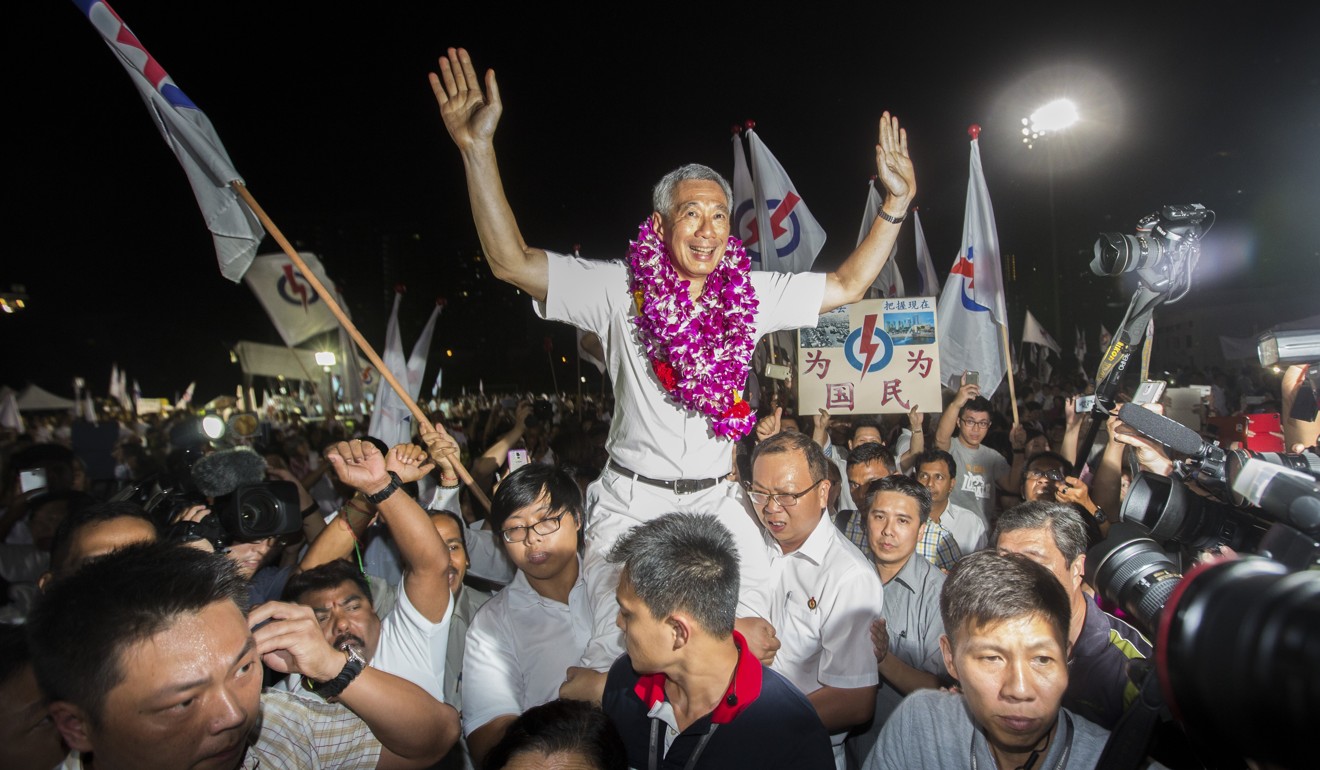
Singaporean Prime Minister Lee Hsien Loong celebrates with supporters at a rally on September 12, 2015, as the results from the last general election come in. The PAP holds 82 out of 100 seats in Singapore’s Parliament, with the next largest party holding nine. Photo: Bloomberg
The Singapore constitution contains eight clauses on fundamental liberties. They guarantee the liberty of the person, prohibit slavery and forced labour, protect against retrospective criminal laws and double jeopardy, and guarantee freedom of movement, freedoms of speech, assembly and association, freedom of religion, rights in respect of education, and the right of equality under which discrimination “on the ground only of religion, race, descent or place of birth” is specifically proscribed.
Singapore has not acceded to major international human rights treaties, such as the International Covenant on Civil and Political Rights, enshrined in Article 39 of the Hong Kong Basic Law and implemented by the Hong Kong Bill of Rights Ordinance.
Unlike Hong Kong’s courts, which adopt an expansive approach to rights interpretation through, in part, perusing foreign court decisions, Singapore courts maintain that when interpreting their constitution and statutes and developing Singapore common law, they should look within the “four walls” of the constitution, where legal developments in other jurisdictions have little value.
Singapore is also not a state party to the United Nations Convention against Torture. Caning is mandatory for unauthorised affixing of a poster on a public wall (our Lennon Walls, for instance, on second conviction), rioting and many other offences.
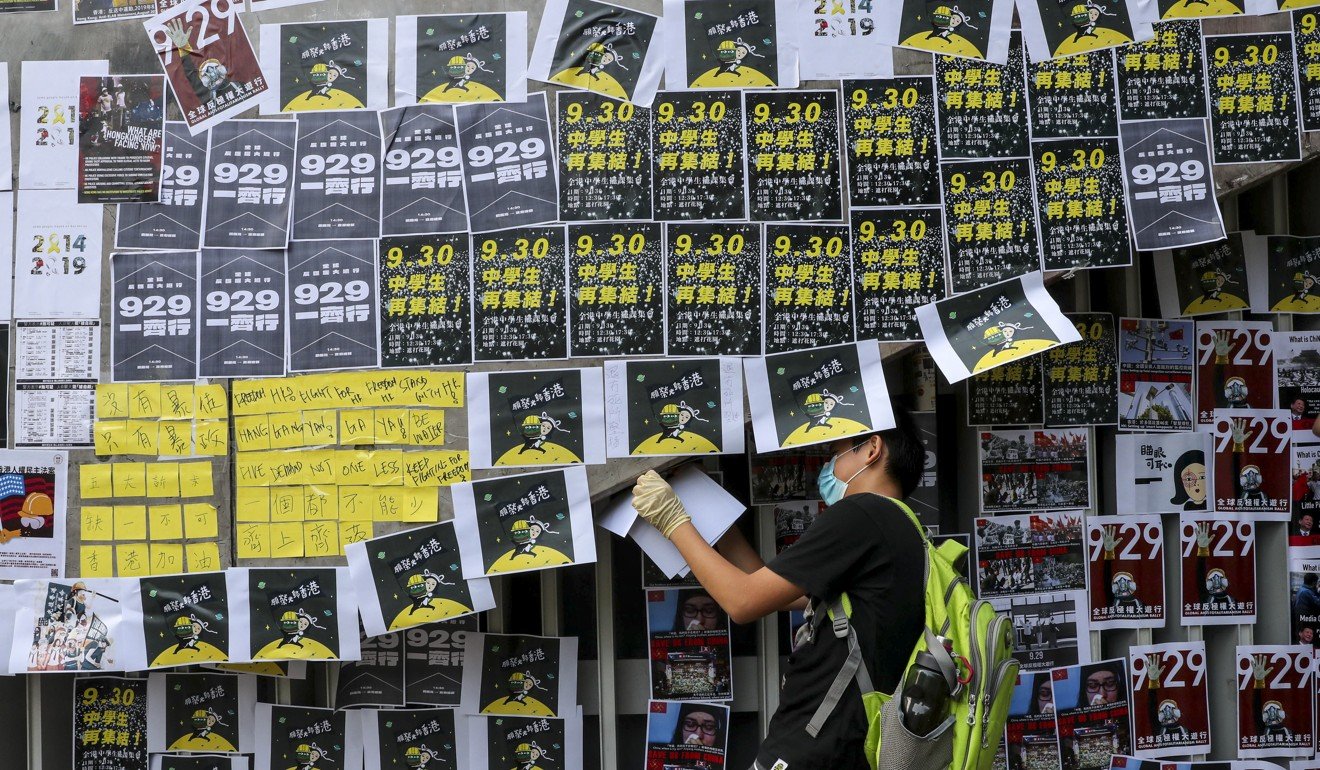
The “Lennon Walls” seen across Hong Kong, such as this one in Admiralty on September 28, are unthinkable in Singapore. Photo: Sam Tsang
Equality on the basis of sexual orientation, which the Hong Kong Court of Final Appeal has found to be a Basic Law requirement, is absent in Singapore;
between men remains a criminal offence under section 377A of the Penal Code. Section 377A is currently under challenge before the courts, for a third time.
between men remains a criminal offence under section 377A of the Penal Code. Section 377A is currently under challenge before the courts, for a third time.
Freedom of expression, especially in criticising government officials, is significantly confined in Singapore through initiations of
by the government or by a number of senior politicians in their personal capacity against critics, opposition parties and foreign newspapers.
by the government or by a number of senior politicians in their personal capacity against critics, opposition parties and foreign newspapers.
Academic freedom, for which the Basic Law provides under Article 137, is not guaranteed in Singapore, as Yale University was recently reminded in its joint enterprise with the National University of Singapore through Yale-NUS College.
While writing my doctoral thesis on China’s exercise of state sovereignty and international legal order at the National University of Singapore, I also wrote an academic essay on sexual minority rights development in Singapore as part of my coursework.
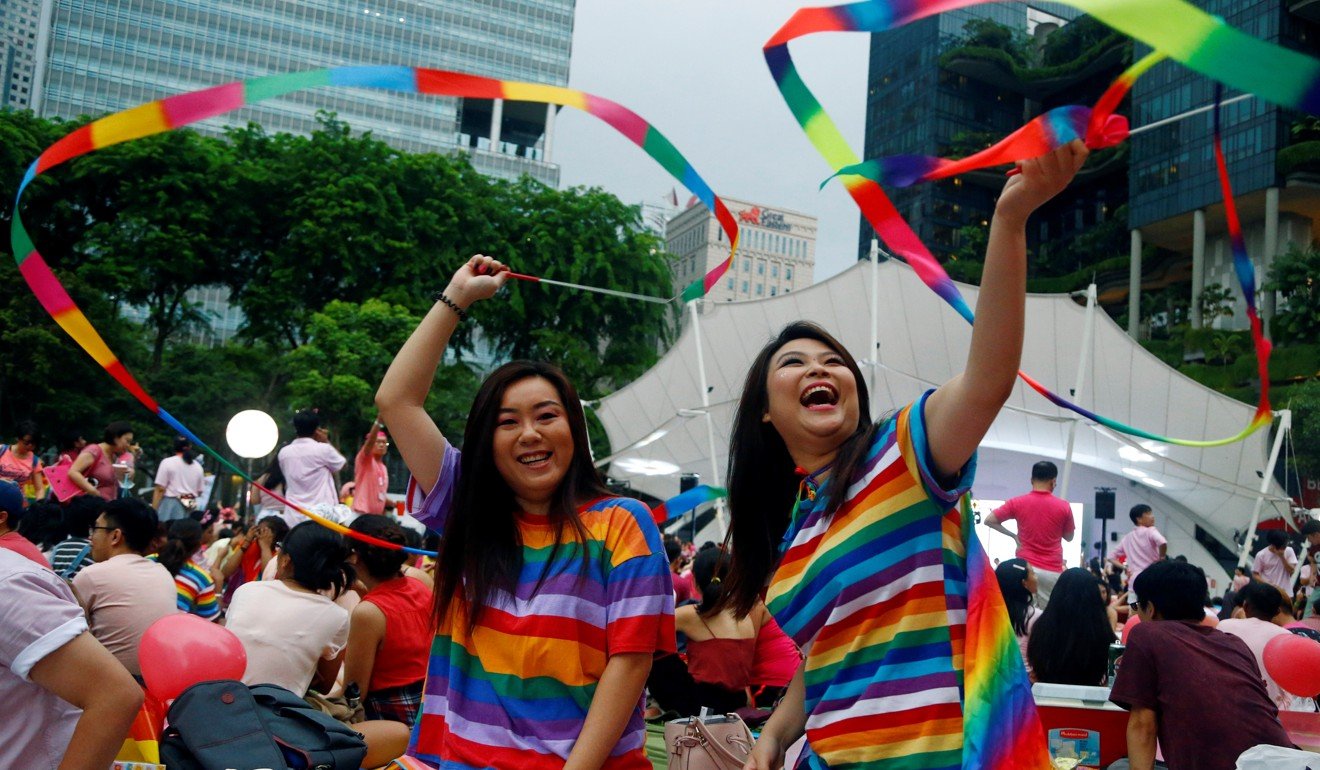
Participants in Pink Dot, an annual event organised in support of the LGBT community, celebrate at Speakers' Corner in Hong Lim Park, Singapore, on June 29. Photo: Reuters
As I intended the essay for publication, I felt the need to ask my doctoral supervisor and a professor in criminal law to scrutinise its every word to ensure that I would not be the subject of any defamation proceedings.
When the essay received the inaugural Rascals Prize from People Like Us, an advocacy group in Singapore for sexual minority rights (of which Michael Hor, former dean of the University of Hong Kong Faculty of Law, was a supporter), I could not present it in a forum without police permission, as I was a foreigner. A Singaporean had to present it in my stead.
Above all, Singapore has had in its legislative arsenal the Internal Security Act since 1963, when it became part of Malaysia, based on the Emergency Regulations Ordinance introduced in 1948 by British colonial Malaya (akin to our own 1922 version Lam invoked on October 4).
However, unlike the powers Lam invoked, the Internal Security Act is a regular law of Singapore, and judicial review of orders under the Singaporean legislation is generally excluded.
Similar to how Article 23 legislation would empower the Hong Kong government and police, the Internal Security Act provides Singapore’s government and police extensive powers relating to internal security, preventive detention, prevention of subversion and suppression of organised violence.
The only avenue in Singapore through which one can exercise freedom of expression, although not immune from civil and criminal repercussions, is at Speakers’ Corner in Hong Lim Park. Prior registration is required, and all participants must be Singaporean citizens or permanent residents.
I do not think I would be brave enough to write my previous columns in the Post
, Executive Council members and pro-establishment legislators if the setting were Singapore. My columns would quite probably have been regarded as defamatory and subversive under its laws.
, Executive Council members and pro-establishment legislators if the setting were Singapore. My columns would quite probably have been regarded as defamatory and subversive under its laws.
Contrary to what Singapore's
and former government officials and
might like one to think, Singapore is not a peaceful society. It is a controlled society par excellence.
and former government officials and
might like one to think, Singapore is not a peaceful society. It is a controlled society par excellence.
Phil C.W. Chan is senior fellow at the Institute for Security and Development Policy. The author should take a look at Iraq, Syria and etc.
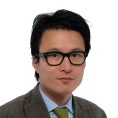
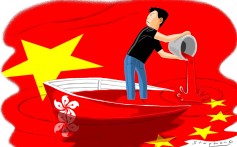
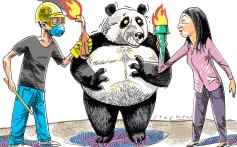



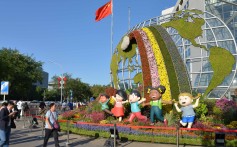





Comments